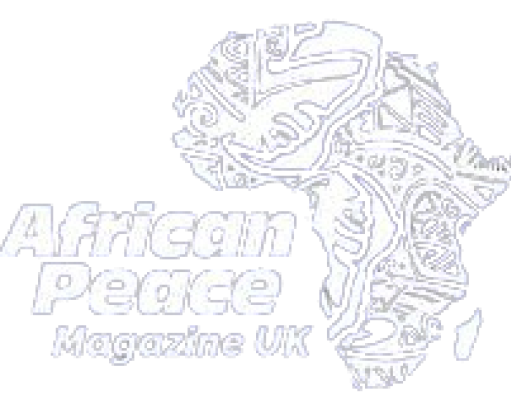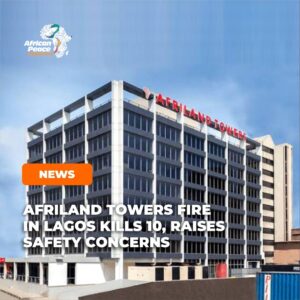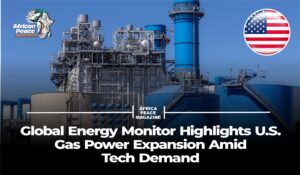Afriland Towers Fire in Lagos Kills 10, Raises Safety Concerns
United Capital and FIRS confirm staff among victims as probe begins into commercial building blaze.
The death toll from the fire at Afriland Towers, a six-storey office complex on Broad Street, Lagos Island, has risen to 10, authorities confirmed Thursday, September 18.
The fire broke out late Tuesday, September 16, quickly engulfing upper floors occupied by financial firms, telecoms offices, and government agencies. Thick smoke spread across the building, trapping dozens inside. Rescue teams from the Lagos State Emergency Management Agency (LASEMA) and firefighters battled through the night to evacuate survivors.
Among the dead are six staff of investment firm United Capital and four senior officers of the Federal Inland Revenue Service (FIRS). “This is an unspeakable loss for our organisation,” United Capital said in a statement, pledging support for bereaved families. FIRS similarly mourned its officials and called for a thorough probe.
Eyewitnesses reported chaotic scenes as panicked workers tried to escape through stairwells and windows. Several survivors were hospitalised with smoke inhalation and burns.
Fire officials say an investigation is underway to determine the cause, with electrical faults and inadequate fire suppression systems among the possible factors.
The Lagos State government has ordered a safety audit of high-rise office buildings across the city.
The Afriland Towers tragedy has reignited debate about enforcement of building codes and emergency readiness in Nigeria’s commercial capital.
Dangote Refinery Exports First Gasoline to U.S. in Milestone for Nigeria
Shipment of 320,000 barrels meets American standards; analysts see new phase for Africa’s energy sector.
Nigeria’s $20 billion Dangote Refinery has exported its first cargo of gasoline to the United States, marking a breakthrough in the country’s decades-long struggle to refine petroleum locally and reduce dependence on imports.
The shipment, about 320,000 barrels was loaded on the vessel Gemini Pearl and delivered to Sunoco’s Linden terminal in New York Harbor this week.
Energy trading giant Vitol brokered the sale, while Sunoco confirmed the gasoline met stringent U.S. fuel quality standards.
The refinery, which began operations in 2024 and is the largest in Africa with a capacity of 650,000 barrels per day, was primarily built to supply Nigeria’s domestic market.
But this export signals its ability to compete internationally. “This is a historic day, not just for Dangote Industries, but for Nigeria and Africa’s place in global energy markets,” a company spokesperson said.
Industry experts say the deal could reshape trade flows. Europe has long been Nigeria’s main supplier of refined fuel; now, the tables may be turning as Africa’s biggest economy emerges as an exporter.
However, challenges remain. A planned shutdown of a gasoline unit for maintenance later this year may temporarily slow exports.
Local critics also argue Nigerians are yet to feel the impact of the refinery through lower pump prices, with domestic fuel subsidies still a political flashpoint.
Still, analysts believe the export marks a decisive step in Nigeria’s quest for energy independence and foreign exchange diversification.
Source: Africa.com





